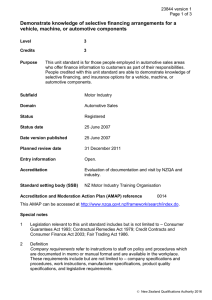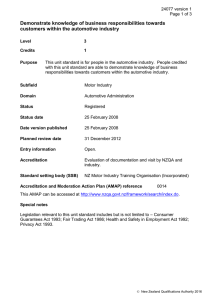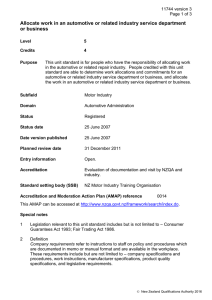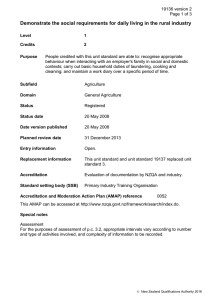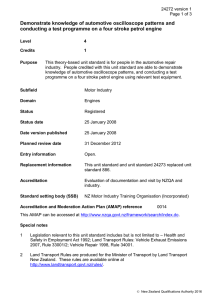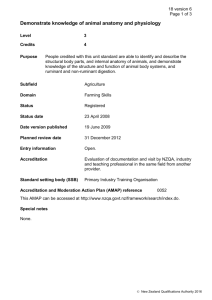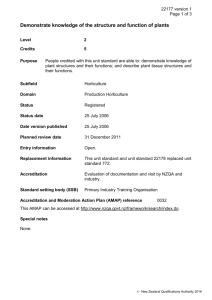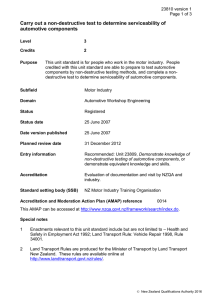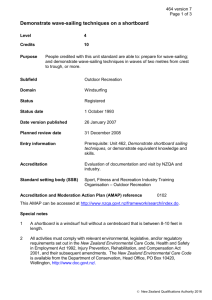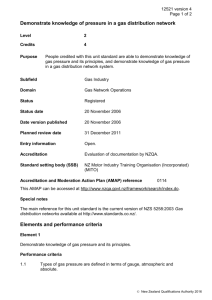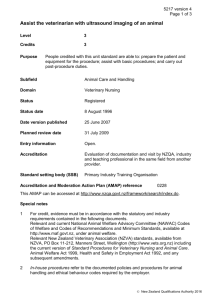Manage time and personal stress in an automotive or related... department
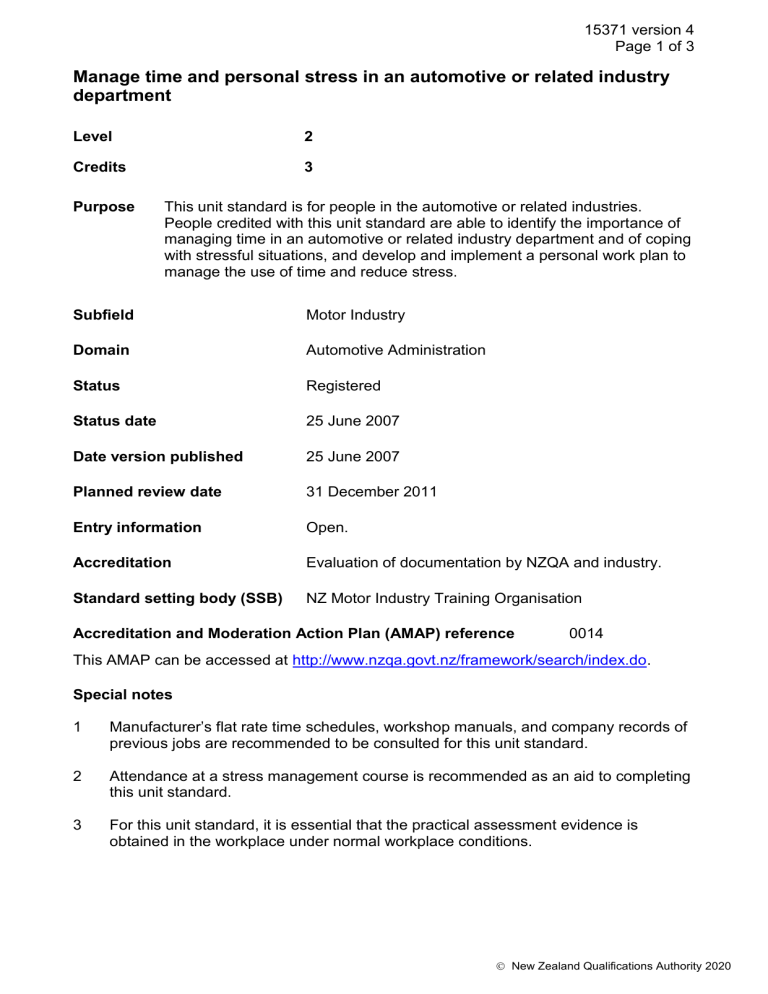
15371 version 4
Page 1 of 3
Manage time and personal stress in an automotive or related industry department
Level 2
Credits 3
Purpose This unit standard is for people in the automotive or related industries.
People credited with this unit standard are able to identify the importance of managing time in an automotive or related industry department and of coping with stressful situations, and develop and implement a personal work plan to manage the use of time and reduce stress.
Subfield Motor Industry
Domain
Status
Status date
Date version published
Automotive Administration
Registered
25 June 2007
25 June 2007
Planned review date
Entry information
31 December 2011
Open.
Accreditation Evaluation of documentation by NZQA and industry.
Standard setting body (SSB) NZ Motor Industry Training Organisation
Accreditation and Moderation Action Plan (AMAP) reference 0014
This AMAP can be accessed at http://www.nzqa.govt.nz/framework/search/index.do
.
Special notes
1 Manufacturer’s flat rate time schedules, workshop manuals, and company records of previous jobs are recommended to be consulted for this unit standard.
2 Attendance at a stress management course is recommended as an aid to completing this unit standard.
3 For this unit standard, it is essential that the practical assessment evidence is obtained in the workplace under normal workplace conditions.
New Zealand Qualifications Authority 2020
15371 version 4
Page 2 of 3
Elements and performance criteria
Element 1
Identify the importance of managing time in an automotive or related industry department and of coping with stressful situations.
Performance criteria
1.1 The importance of managing time in an automotive or related department is described in terms of work flow, personal work habits, customer relations, and company profitability.
1.2 Personal stress levels are identified and described in terms of overload, unload, and positive effects.
1.3 Identification of stress overload is described in terms of personal nature and work performance.
1.4 Methods of coping with stress are identified in terms of their effectiveness and applicability to the work environment.
1.5
1.6
Habits and practices which result in non-effective use of time are identified.
The use of flat rate time schedules, information from previous and similar types of jobs, and the allocation of work are described in terms of workflow efficiency.
Range allocating labour hours sold; experience of staff; strategy in dealing with unavoidable delays; communication with staff, customers, and outwork contractors.
Element 2
Develop and implement a personal work plan to manage the use of time and reduce stress.
Performance criteria
2.1 Plan is developed based on current work situation, company requirements, and personal objectives.
Range setting goals, prioritising the work, estimating the time to complete the work, company deadlines, strategy to reduce personal stress.
2.2 Plan is implemented utilising techniques that will increase efficiency and effectiveness of personal work requirements.
New Zealand Qualifications Authority 2020
15371 version 4
Page 3 of 3
Please note
Providers must be accredited by NZQA, or an inter-institutional body with delegated authority for quality assurance, before they can report credits from assessment against unit standards or deliver courses of study leading to that assessment.
Industry Training Organisations must be accredited by NZQA before they can register credits from assessment against unit standards.
Accredited providers and Industry Training Organisations assessing against unit standards must engage with the moderation system that applies to those standards.
Accreditation requirements and an outline of the moderation system that applies to this standard are outlined in the Accreditation and Moderation Action Plan (AMAP). The
AMAP also includes useful information about special requirements for organisations wishing to develop education and training programmes, such as minimum qualifications for tutors and assessors, and special resource requirements.
Comments on this unit standard
Please contact the NZ Motor Industry Training Organisation jlane@mito.org.nz
if you wish to suggest changes to the content of this unit standard.
New Zealand Qualifications Authority 2020
